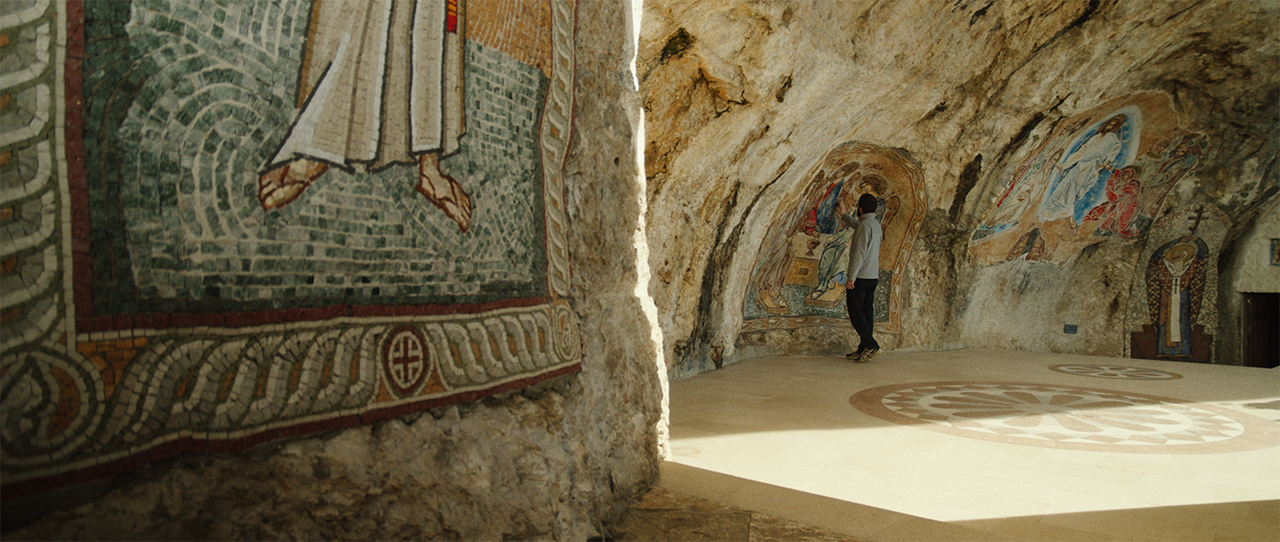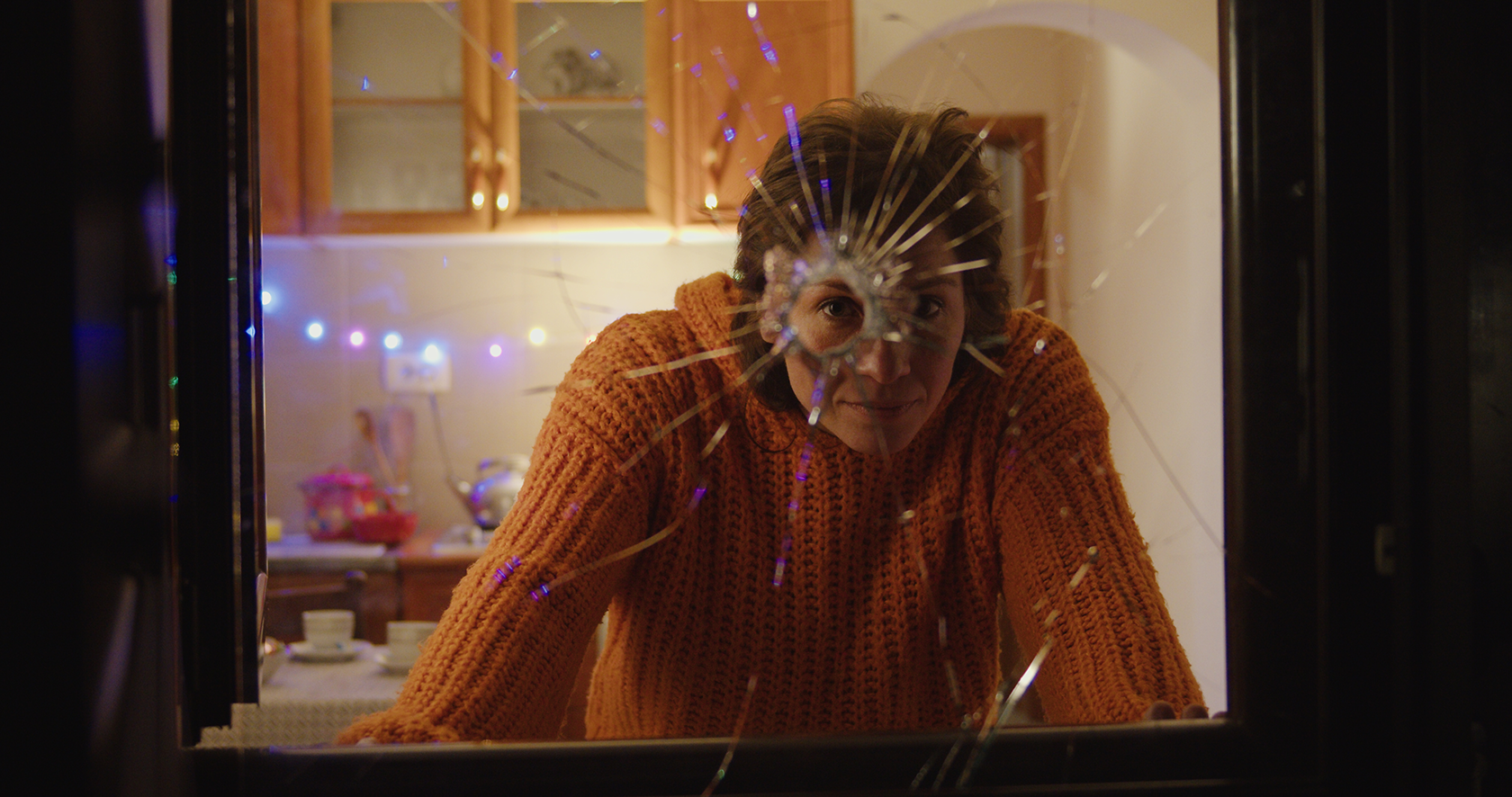a territory without war
Director Taya Zubova has made a documentary about our fund Pristanište
A FILM
THE HEROES OF THE FILM ARE REFUGEES AND DISPLACED PERSONS FROM UKRAINE/RUSSIA/BELARUS
These people have found an asylum in Pristanište, in our community which unites and helps all the victims of this war.
These stories and many others were documented in Taya Zubova's upcoming film. We talked to her about how the film came about.
These stories and many others were documented in Taya Zubova's upcoming film. We talked to her about how the film came about.
1,800 others is now here, in cities and towns on Montenegro
The home of these people and at least
— First of all, I would like to ask you about the genre in which you made this film. As far as we have seen, it's not really a documentary, is it?
— Docs can be made in very different formats. In some documentaries, the author walks around and follows the subjects for ten years or more. I’ve had such an experience too, I was filming one subject for eleven long years. And some docs are based on reconstruction. I take real stories and use them as the foundation of the narrative. The material I'm filming on purpose and the material that's happening here and now blend together. I have my own style — metaphorical reconstruction.
I conducted preliminary interviews with all the subjects to understand what their stories consisted of. The moment when they first arrived in Montenegro, the circumstances of the trip, and the state they were in — we were figuring out how to show it, how to reconstruct it. That is, we did not go to Mariupol and we did not then leave Mariupol with our subjects. It would have been dangerous for them, for us, for everyone. But we did a reconstruction, that is, we did something similar, sometimes in a kind of a metaphorical way, to evoke how they felt at that moment. We recalled the difficult feeling the person had experienced when they had lost or abandoned their home, and we reconstructed it in such a way that the audience could also experience that feeling, at least a little bit, could step for a short time in the subject’s shoes.
I conducted preliminary interviews with all the subjects to understand what their stories consisted of. The moment when they first arrived in Montenegro, the circumstances of the trip, and the state they were in — we were figuring out how to show it, how to reconstruct it. That is, we did not go to Mariupol and we did not then leave Mariupol with our subjects. It would have been dangerous for them, for us, for everyone. But we did a reconstruction, that is, we did something similar, sometimes in a kind of a metaphorical way, to evoke how they felt at that moment. We recalled the difficult feeling the person had experienced when they had lost or abandoned their home, and we reconstructed it in such a way that the audience could also experience that feeling, at least a little bit, could step for a short time in the subject’s shoes.
— How did you choose your subjects?
— For our last anti-war film, The Trauma of Being a Witness, made in the first half of 2022, we asked subjects to fill in questionnaires and then chose stories from them. With Pristanište, surprisingly enough, it didn't work out that way at all. Everyone was very humble, ‘Oh, maybe not me? What's so special about me? Someone else's story is so much more powerful and striking’. Then I just talked to the volunteers who already knew many people personally and were friends with them. And I understood that every humble person here had a very powerful and striking story. Understandably Ukrainians, but also Russians. And then it just clicked and I knew how to tell the second half of this year of the war through some of these stories.
And when it came to asking a person to use their story in the film, no one said no. ‘Yes, of course I'm willing to tell the story. Still, I think this other person’s story is better, though. But if you are ready, of course I am, too.’ I want to say a huge thank you to all our subjects and especially those from Ukraine. They spoke so calmly about what they had experienced, they are incredible people.
And when it came to asking a person to use their story in the film, no one said no. ‘Yes, of course I'm willing to tell the story. Still, I think this other person’s story is better, though. But if you are ready, of course I am, too.’ I want to say a huge thank you to all our subjects and especially those from Ukraine. They spoke so calmly about what they had experienced, they are incredible people.
— What was a particularly memorable moment in the shooting?
— I filmed how you celebrated the New Year. It was important for me to show how you managed to do this — to celebrate the New Year together in a mixed company of Russians and Ukrainians. When I met you and the whole team, I fell deeply in love with this place where people are not separated by nationality and... It is a very important holiday for all of us, all three nations. You could tell that everyone who gathered that time — whether they were Ukrainians, Belarusians, or Russians — they all had one dream and one task for the coming year: to end this war. And it's also important to note that what we shot at the New Year's party was very surprising and not what we had expected at all; the state of things was quite out of the ordinary. Not the kind you can imagine in this situation, but I won't go into the details now, because exactly that moment is going to be the climax of the film. Probably one of the most important and powerful episodes we have shot.
Galya Shvets in her car. Like the day when she and her son Zakhar began their journey from Mariupol.
— Has it turned out to be a film about all of us living through the trauma of that war, or is it already about a new life in emigration too?
— No, the topic of trauma is over. This film has a really big metaphor, but another one. And to make it clear for the viewer, we came up with a special camerawork technique of showing different parts of our subjects' lives — before and after — using broken glass. During the preliminary interviews, this image came to me, the image of people's lives being shattered, and then they start to rebuild them, to rebuild their lives anew. When we just read the news bulletins, it's hard to process and feel it all. We've organized the frame in such a way so that it could be felt all the time.
A still from the film. The story of the iconographer Peter, who now lives in Montenegro.
— You have a special connection with Montenegro. Tell us about it.
— I used to live in Montenegro. And even though I've lived in eight other countries and I've seen a lot of different natural wonders, I'm particularly in awe of the colours here, the architecture, these little white houses, these incredible mountains that are reflected in the sea, and these unique flowers not to be found anywhere else. When I lived here five years ago, I felt pretty lonely. There was no émigré community like you have now, and I would even say that Russians often have it so wrong... We don't really want to communicate with each other when we emigrate. Maybe it's my perception, but I think so because it was very difficult for me to find a community that was really close to my interests when I emigrated. And so when I saw that now in Montenegro, in this country I love, the country of very kind people who always try to help you, suddenly such a unifying project as Pristanište is born, I immediately felt a surge of creativity and wanted to make a film about these people, about you.

Кадр из фильма. История иконописца Петра, который теперь живет в Черногории.
A shot from Budva, where our Asylum, home to all the victims of this war, is located.
— It seems that your first film, entirely about the Russians who fled the country, was an attempt to deal with the feeling of guilt. Are you still experiencing it now, a year later?
— When the war started, I felt immensely, horribly guilty. That said, if you ask me where I had been these past eight years, I can honestly say that eight years ago I had left because I was against what was happening. My work was affected by those events. But it was still a terrible feeling of guilt. However, when I started digging further and talking to more people while working on my films, I saw that this guilt keeps people down, it makes them depressed, you feel so guilty that you'll never get over it. And if you never get over it, there's no point in doing anything. You have to fight that feeling and do something despite it. For instance, a film. Or even something very small. Or, on the contrary, something big. Now what you are doing with Pristanište — it's a huge contribution. People come to stay in your houses for only two weeks, but how much happens to them in that time, they find support from you, they begin to feel empowered, they begin to see a future for themselves, they change so much…
The filming process
— That broken-glass technique and many other things in the filming process clearly show that you have invested in this work a lot, emotionally. You are not only the director, the producer, the manager, and even the cook for subjects and volunteers all in one person in this process. It's like you're one of the subjects yourself.
— Like I said, it is a film about a new life, a small life for Pristanište protégés in another country. Of course, I am not a refugee myself, but why am I so interested in emigrants? Yes, I left a long time ago, and I no longer have any problems with documents. But I experienced and am experiencing the same things that every subject is experiencing. I lost my home the same way. I won't be able to go back with my films anymore. I still haven't found my country and I've been looking for it for quite some time. I understand my subjects, I understand them very well.

Svetlana Shmeleva, Director of Pristanište
Svetlana Shmeleva, Director of Pristanište
The interview was recorded by
Sonia Shaidullina
~
This film explores the theme of rebuilding shattered and broken lives, highlighting the universal spirit of people from diverse nationalities coming together to support one another.
As of May 10, 2023, with your generous contributions, we have successfully completed our fundraising campaign for the film. Stay connected with us on our social media channels to ensure you don't miss the release!
As of May 10, 2023, with your generous contributions, we have successfully completed our fundraising campaign for the film. Stay connected with us on our social media channels to ensure you don't miss the release!
€ 5589
WE COLLECTED
TO MAKE THIS FILM
TO MAKE THIS FILM